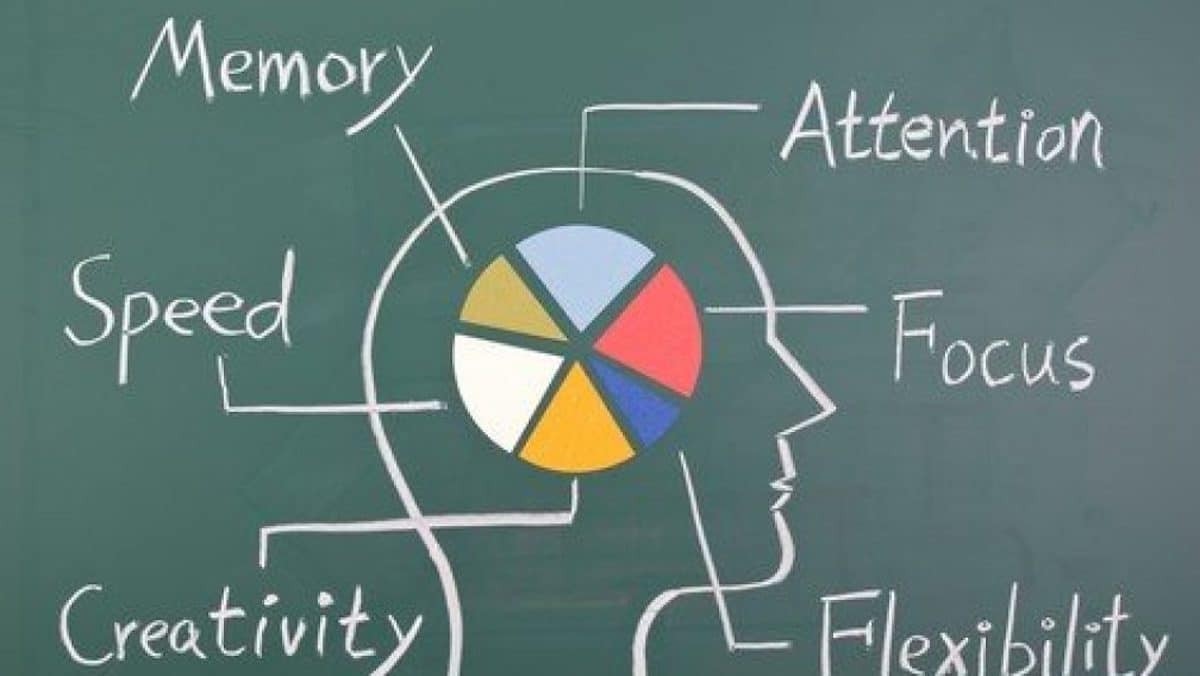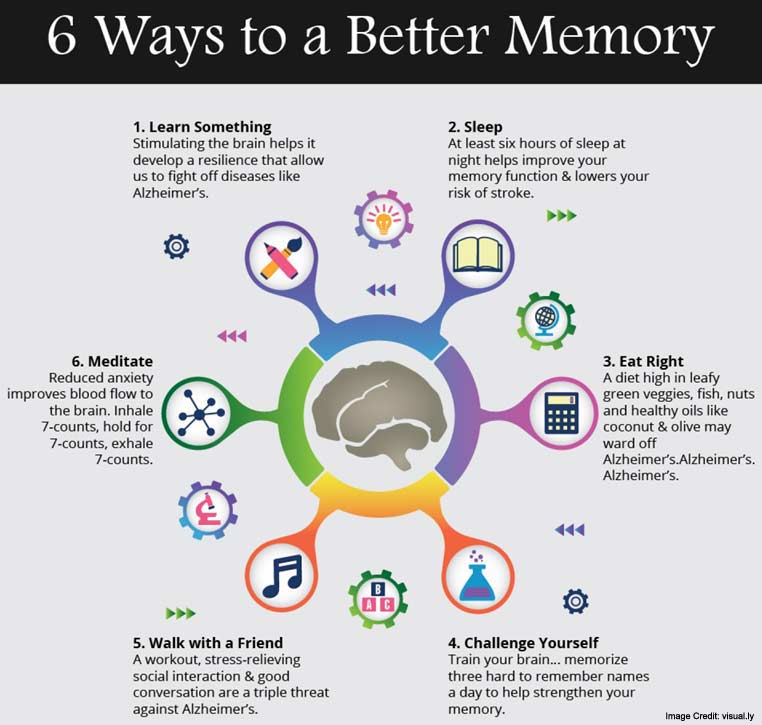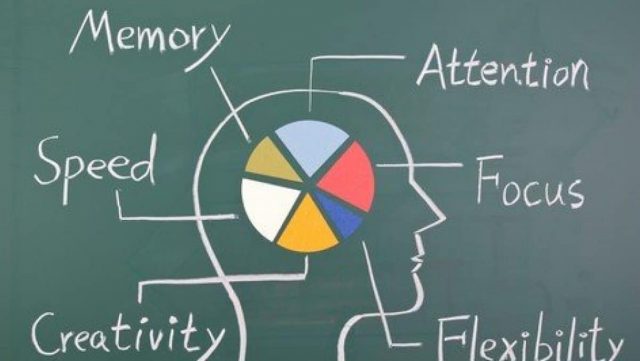
Improving memory is not just a function of diet and good nutrition, but also a function of sleeping patterns, visualizing, assimilating new information and critical thinking abilities.
‘Remember me?’ – the scariest question you can ever hear. Bewildered look and silence instead of an affirmative reply. ‘It seems that I have seen you or even talked to you, but how come I do not remember your name’ – you are thinking and grinning amiably like a Cheshire cat, answering ‘Yeh, sure!’, but you are lying!
How can we, in modern era of multitasking, be so unable to keep in mind names, dates and other ordinary stuff without our gadgets constantly ringing, twinkling and texting us to remind what, when and how to do. For the most part, they prevent the situations with our absent-minded behavior from happening, but they’re no good when it comes to studying. Your teacher would not be impressed, if you were smiling in the middle of reciting a verse, because you forgot the lines.
Understanding the importance of current topic, we are going to define what we should eat, drink and do in order to enhance our memory. As you see, all points are written down so that you do not forget them.
So, the question is: what improves memory capacity?
WHAT TO EAT and DRINK
Firstly, we need to go to your kitchen. It does not mean that its atmosphere favors us in memorizing, but contents do. It seems that vegans should remember everything, because vegetables, olive and coconut oil and walnuts are rich in nutrients for memory.
Meat eaters also can enhance their memory by consuming red meat which is full of brain-boosting vitamin B12. This element is vital for active brain productivity. In addition, fatty fish like salmon, tuna, trout, mackerel, sardines, and herring are rich sources of omega-3 fatty acids, which are particularly helpful for brain health.
Also, regular green tea consumption may improve memory and delay brain aging.
How to get better memory?
WHAT TO DO
Now, it is time to move further. I literary mean that it is time to move, because exercising stimulates you to get better memory. Nerve cells release proteins (neurotrophic factors) during exercise, which triggers numerous chemicals that directly affect cognitive functions including learning skills.
After physical activity, it is time to calm down, which is also helpful if you do it right. Only a mind in peace is capable of getting better memory. It is scientifically proved that meditation and rest are much more effective than excruciating learning by rote. Research shows that after eight weeks of meditations you are able not only to enhance your long-term memory, but also improve your working memory abilities just in two weeks.
Do not be afraid to take a step back and mull over during such activities as writing critical thinking papers. Chose a topic and give yourself some time to come up with appropriate arguments. Critical thinking is intolerable to bustle, so take a deep breath and exhale. Concentrate on two or three weighty arguments to prove your point of view and only then proceed to the structure of your critical thinking paper, essay or research work.

Improving memory: What sleep research discovered.
Researchers wish us good night. Sleeping is a magical wand for concentration and memory improvement. Napping helps our brain to get better memory: a research conducted by Beth Israel Deaconess Medical Center in 2005 showed that a good sleep at night triggers brain changes that play a key role in memory improvement.
A group of young people around college age were taught elaborate finger movements, which resembled playing the piano. After 12 hours of being awake or sleeping, their ability to repeat the movements was tested with an MRI. As a result, performance of newly-taught skills was significantly better after sleep. It proved the statement that we shift memories to more efficient storage regions of the brain while sleeping. Hence, recalling can be performed better after sleep.
Another study held in Lübeck, Germany compared results performed by two groups. The participants of one group took a nap after memorizing some data, while the members of another group did not. Results proved that the nap group had mostly completed a shift in activity from the temporary processing area (in the hippocampus) to storage areas in the cortex.
Thus, a short nap soon after memorizing something is crucial for memory improvement. That is why, after a study session for a school exam, take a nap right away, so that new information surely becomes firmly established.
There are more techniques that will assist you in enhancing your memory for studying:
Involve different senses: connect new words or dates with colors, textures, places; rewrite, read out loud and recite rhythmically what you want to remember.
Visualize: in order to memorize someone’s name, associate it with an image. Find your own way of linking names or new words to images, yet do not use trivial ones, as they won’t work. The most bizarre comparisons and connections are usually the easiest to remember, so feel free to be creative.
Connect new information with the familiar one: make bounds between your knowledge, connect new material with something that you already know. For retentive memory you need to structure new information.
Start with understanding the basics: concentrate on the essence, rather than details or exceptions.
Paraphrase and explain something new to your friend using your own words, or at least retell what you have learnt to a rubber duck. Funny as it seems, it is actually an efficient way of targeting a problem. This method is called “rubber duck debugging” as it was primarily used by software engineers who considered little rubber ducks as a grateful audience eager to hear a step-by-step explanation of every line of the code to find weak spots in a program. When you use simple words to explain complex concepts to someone inexperienced, your own perception of the concept changes which allows you to determine whether you need to look more into it.
Practice and repetition make perfect: review what you have learned on the same day and at intervals thereafter. Also, the brain responds to novelty, so repeating something in a different way will help to memorize material better.
Take a break in the middle of memorizing. Taking some time out to rest can actually speed you up in the long run.
All points mentioned above show that memory improvement does not demand any additional efforts or expenses. Thus, awareness and implementation of simple techniques to your daily routine are the easiest answer which could be found to the question how to improve … sorry, what was the question?








